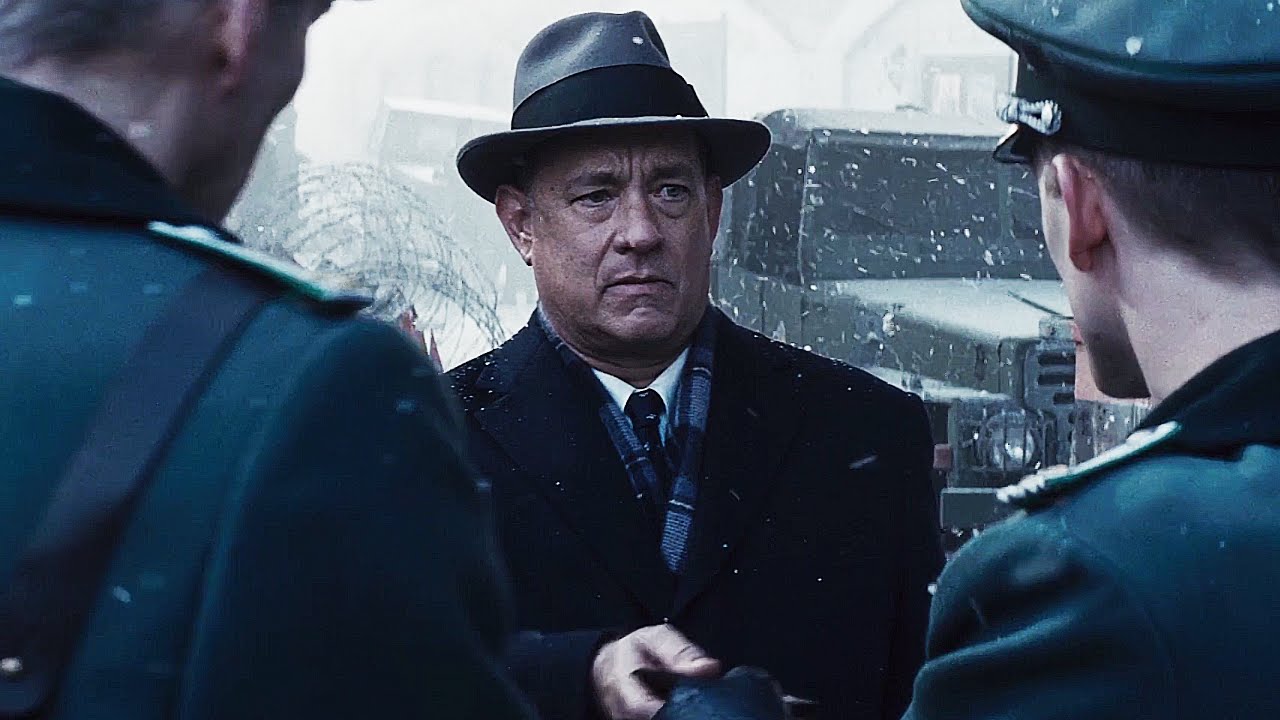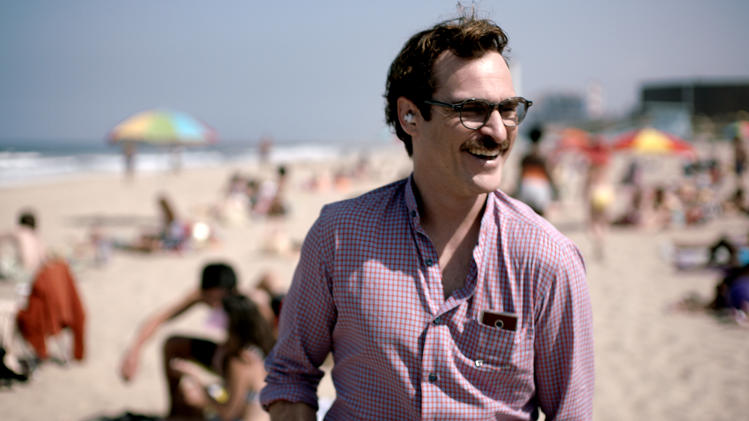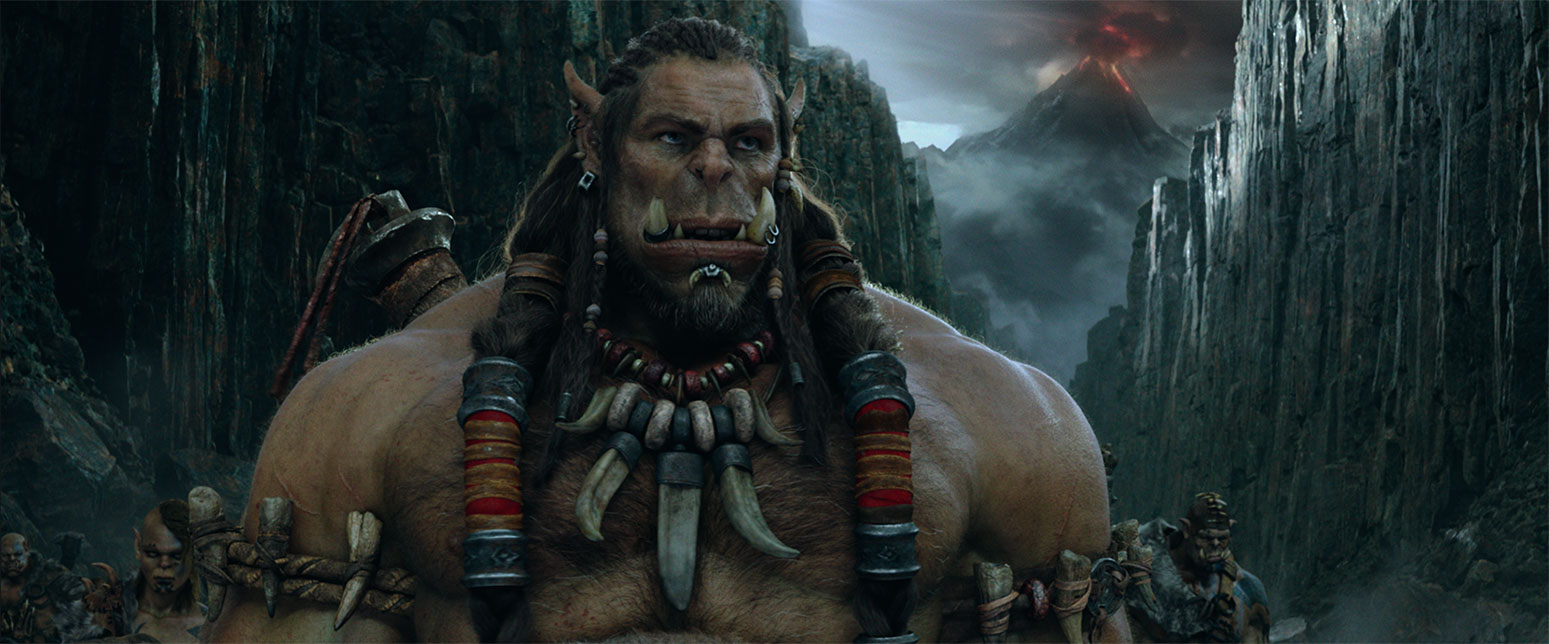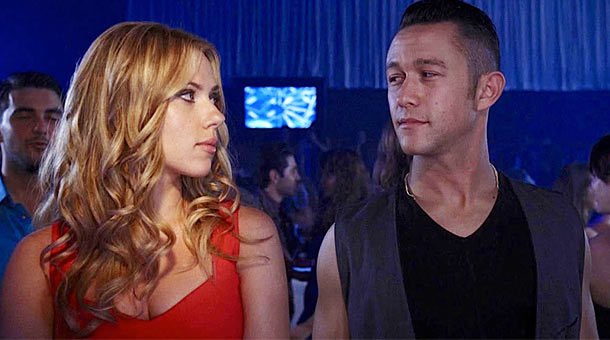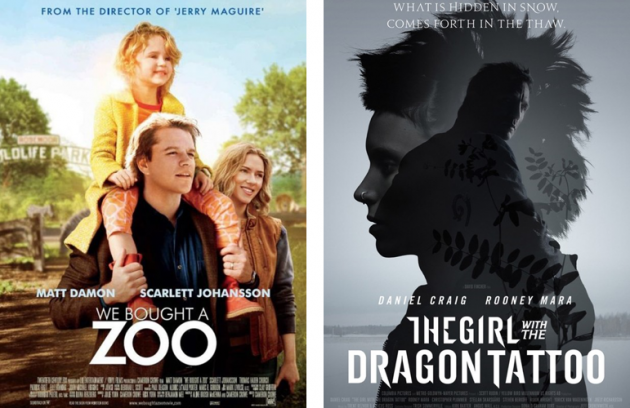At this point in his career I find it reassuring that Steven Spielberg is still making movies. The man doesn’t have to and surely has nothing left to prove but he continues to take on projects every couple years. His focus has changed in the last decade, moving from the fantastical (Minority Report, War of the Worlds) to the stately and procedural (Lincoln) but the quality and effort still remains. With Bridge of Spies, Spielberg continues the trend, this time tackling the ungainly tenor of the Cold War and the absurd nature of 1960’s Soviet paranoia.
Tom Hanks – frequent Spielberg collaborator – is James Donovan, a successful New York insurance claims lawyer and clear grandpa-sweater enthusiast. One afternoon after closing another case Donovan is pulled into a meeting with his partner. The FBI has captured a man who they believe to be a Russian spy and they are seeking representation. The U.S. wants to prosecute and string him up but don’t want the justice system to appear rigged or faulty. A spirited defense is needed even if the outcome is preordained.
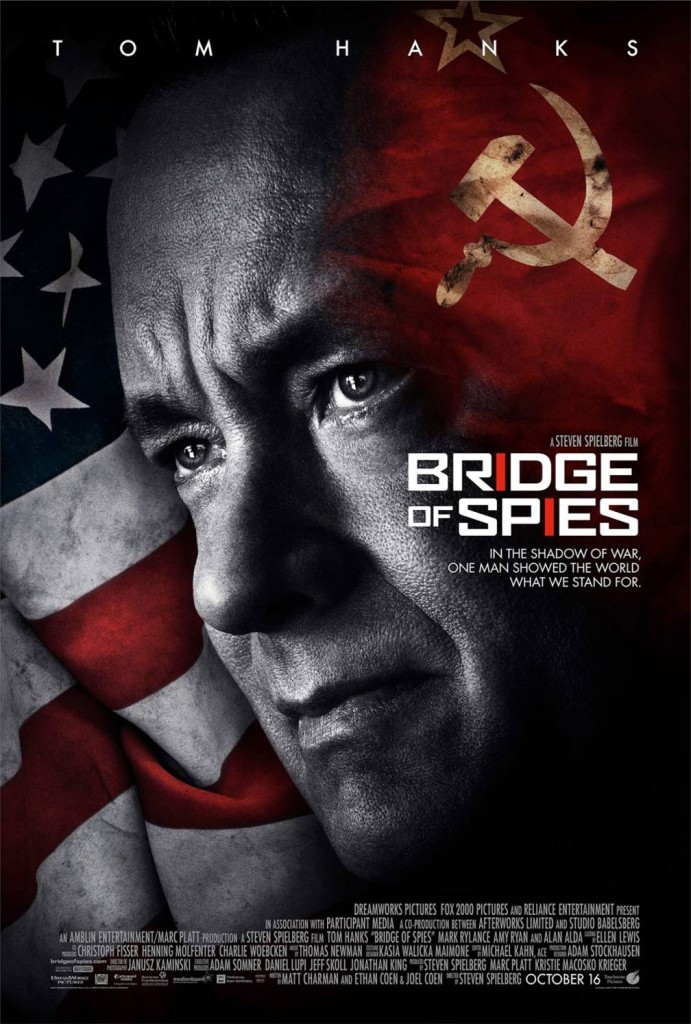 The man in question is Rudolf Abel (Mark Rylance) – a quiet New York painter who seems harmless enough. In a wordless, virtuosic opening sequence Abel is seen going about his day on the streets of New York; shopping, painting and what looks like collecting classified information. When the FBI closes in there is almost no doubt that Abel is guilty but plenty of doubt as to what his intentions are. Donovan witnesses his humanity and risks his reputation in the press and his firm to keep Abel off death row.
The man in question is Rudolf Abel (Mark Rylance) – a quiet New York painter who seems harmless enough. In a wordless, virtuosic opening sequence Abel is seen going about his day on the streets of New York; shopping, painting and what looks like collecting classified information. When the FBI closes in there is almost no doubt that Abel is guilty but plenty of doubt as to what his intentions are. Donovan witnesses his humanity and risks his reputation in the press and his firm to keep Abel off death row.
Meanwhile things aren’t so hunky dory in Soviet airspace either. The U.S. has built a spy plane that can circle the Soviet block from 70,000 feet leaving it basically undetectable. That is until its very first flight when it is immediately discovered and shot down, leaving Francis Gary Powers (Austin Stowell) in Soviet hands. To throw even more fuel on the fire the Soviets are erecting quite the wall in the middle of Berlin (you may have heard of it,) displacing citizens on either side. Yale student Frederic Pryor (Will Rogers) is studying in East Berlin and before he gets out wants to get his girlfriend and her Father across the wall. In his attempt to do so he’s captured and thrown in jail for one really flimsy count of espionage. Soviet Union 2 – U.S. 1.
At home Donovan has done the impossible and convinced the judge to spare Abel’s life through a series of fairly impressive legal loopholes. After regaining some semblance of normalcy at the firm his life is thrown for a loop when the CIA approaches him to negotiate a high profile prisoner swap. The U.S. wants Powers back in exchange for Abel and sends Donavon to Berlin to make it happen.
The 2nd half of the film is a wonderful cat and mouse game between Donovan and the KGB as he attempts to navigate increasingly murky waters to ensure the swap goes smoothly. You see, Donovan is a bit of a boy scout and when he learns the Soviets have two Americans in custody he won’t leave without the safe release of both.
Spielberg – working with a script from the Coen Brothers and Matt Charman – is in a comfort zone here. He’s taken the best moments from the senate floor in Lincoln and applied them to the backrooms of the Soviet Embassy in East Berlin. Its riveting stuff to watch Donovan “represent” the interest of the United States while not necessarily working for them. Spielberg lines the film with his signature nationalism but I couldn’t help but notice the Coen’s cynical nature shine through in key moments. Sure there are scenes of redemption and Spielbergian flourishes but the Coen’s cut through that by often pointing out the absurdity of the Cold War with wry, cutting comedy.
Hanks is in full Jimmy Stewart mode – never backing down from his moral convictions. He’s perfect for the role of Donovan because we trust Hanks the actor to complete the task. Expect to hear from him and Mark Rylance come awards time – who could potentially be a front runner for Supporting Actor. His turn as the subdued Rudolf Abel is beautifully rich and understated. He captures so much of what Spielberg often lacks – subtlety.
Bridge of Spies is classic espionage wrapped in the gloss of awards season. Spielberg is still a master of tension and with his new found love of courtroom negotiation he’s found a story that is a near perfect marriage of the two. Sure, it has his unique brand of sweetness throughout but it finds a middle ground that I found refreshing. James Donavon isn’t your typical American hero but in many ways he’s exactly what we needed at the time – a man who found solace in diplomacy, not explosions.

